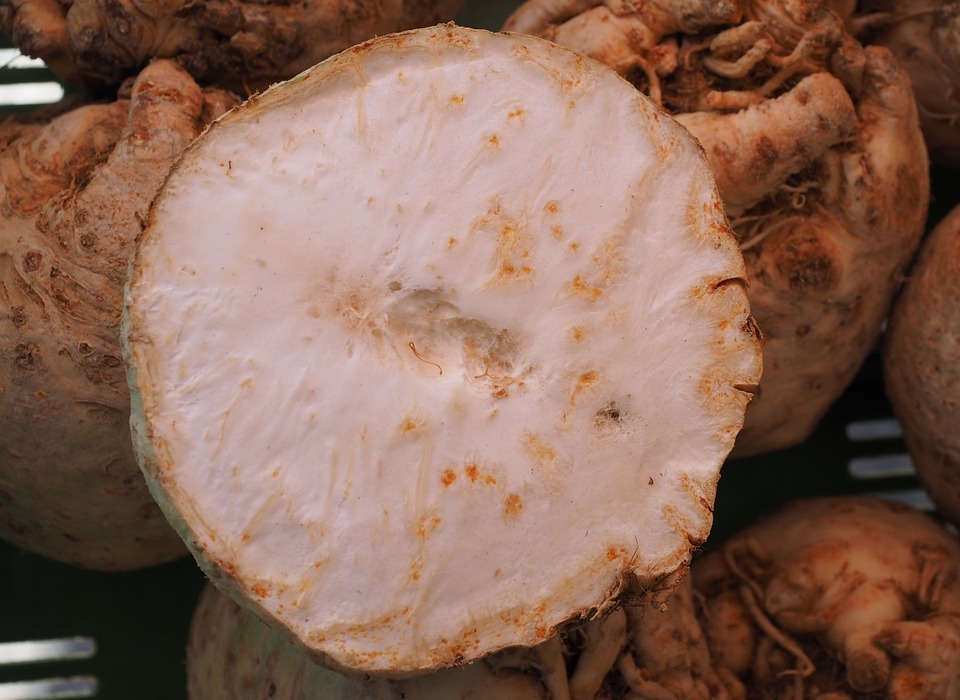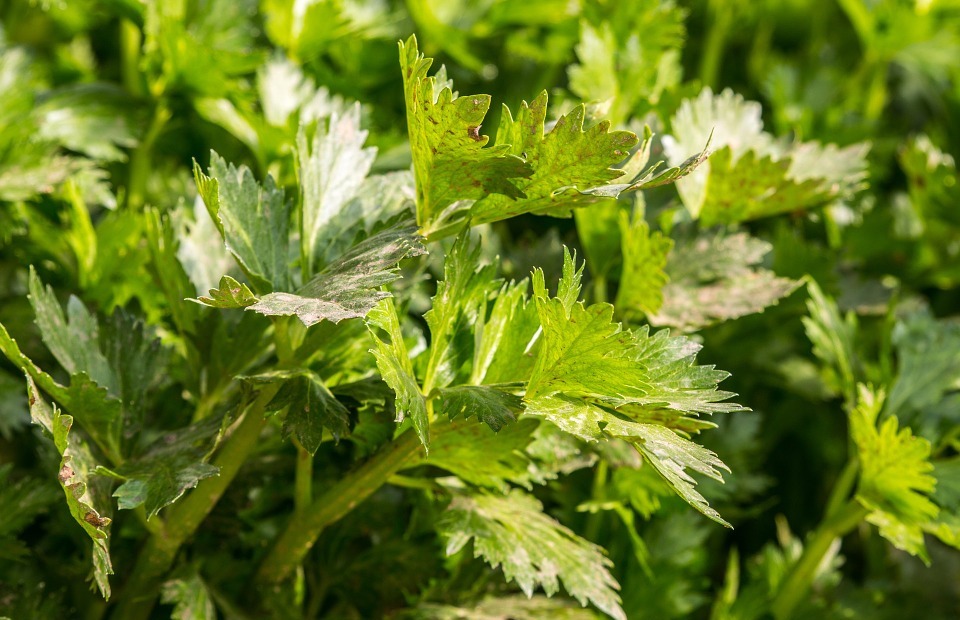This comprehensive guide delves into the complex relationship between celery and rabbits, exploring its potential benefits and risks, and providing practical advice for responsible feeding. We’ll unpack the nutritional value of celery, examine potential dangers, and offer step-by-step guidance on introducing it to your rabbit’s diet safely and effectively.
Part 1: Understanding the Nutritional Value of Celery

1.1. A Blend of Essential Nutrients
Celery is more than just a crunchy snack; it's a natural source of various vitamins and minerals that contribute to overall rabbit health.
- Vitamin K: This vital nutrient plays a critical role in blood clotting and bone health, ensuring proper wound healing and strong skeletal structure.
- Vitamin C: A potent antioxidant, vitamin C helps bolster the immune system, fighting off infections and promoting general well-being.
- Potassium: Essential for regulating fluid balance and nerve function, potassium contributes to healthy muscle contractions and maintaining proper blood pressure.
- Folate: Crucial for cell growth and development, folate is particularly vital during pregnancy and plays a key role in producing red blood cells.
- Dietary Fibre: A significant component of celery, fibre is vital for maintaining a healthy digestive system. It helps regulate bowel movements, prevents constipation, and encourages the growth of beneficial gut bacteria.
1.2. Low in Calories and Fat
Celery is a low-calorie, low-fat vegetable, making it a suitable snack option for rabbits prone to weight gain. However, remember that moderation is key, as excessive consumption can still contribute to digestive issues.
Part 2: Exploring the Potential Risks of Celery for Rabbits

2.1. Oxalates: A Potential Concern
Celery contains oxalates, a naturally occurring compound that can bind with calcium in the body, potentially hindering its absorption. This can lead to health problems, especially in rabbits predisposed to kidney stones or other calcium-related issues.
2.2. Pesticide Residues: The Importance of Organic
Celery is often treated with pesticides to prevent insect damage and extend shelf life. While these pesticides are generally safe for human consumption in small amounts, they can be harmful to rabbits, particularly when ingested regularly. Choosing organic celery whenever possible is crucial, as it is grown without the use of synthetic pesticides.
2.3. Digestive Issues: The Role of Fibre
While celery offers beneficial fibre, an excessive intake can upset the delicate digestive balance in rabbits. Introducing celery gradually and monitoring your rabbit for signs of digestive discomfort is essential.
2.4. Choking Hazards: The Importance of Proper Preparation
Celery stalks can be quite tough, posing a choking hazard for rabbits, especially smaller breeds. It's essential to chop celery into small, manageable pieces before offering it to your rabbit.
Part 3: Unveiling the Secrets of Safe Celery Feeding
3.1. Moderation: The Key to Responsible Feeding
Celery should be treated as a supplemental treat, not a staple food. Offer a small piece of celery a few times a week, ensuring it never becomes a significant portion of your rabbit’s diet.
3.2. Freshness and Quality: Choosing the Best Celery
Always select fresh, high-quality celery, free from blemishes, wilting, or signs of spoilage. Avoid celery that appears soft or mushy, as it may be less nutritious and more likely to cause digestive issues.
3.3. Preparation: Ensuring Safety and Palatability
Before offering celery to your rabbit, wash it thoroughly to remove any dirt or pesticide residues. Chop it into small, bite-sized pieces to prevent choking hazards. Consider offering celery leaves, which are generally softer and easier to digest than the stalks.
3.4. Monitoring for Reactions: Observing Your Rabbit's Health
Introduce celery gradually to your rabbit's diet, starting with a small amount and observing their reaction. Monitor for signs of digestive upset, such as diarrhoea, gas, or lethargy. If you notice any adverse reactions, discontinue feeding celery and consult with your veterinarian.
Part 4: Exploring Alternatives to Celery for Rabbits
4.1. A World of Green Leafy Vegetables
Numerous other green leafy vegetables offer safe and nutritious options for rabbits, providing a diverse and balanced diet.
- Parsley: A rich source of vitamins A, C, and K, parsley is a great addition to a rabbit's diet.
- Cilantro: High in antioxidants and essential minerals, cilantro offers a flavourful alternative to parsley.
- Spinach: Abundant in vitamins, minerals, and antioxidants, spinach is a popular choice for rabbits. However, due to its high oxalate content, it should be offered in moderation.
- Kale: A superfood for humans and rabbits alike, kale is packed with vitamins A, C, and K, as well as essential minerals.
- Lettuce: While some lettuce varieties are safe for rabbits, others contain high levels of oxalates and should be avoided. Choose low-oxalate varieties like romaine lettuce or loose-leaf lettuce.
4.2. The Importance of Hay and Grass
Hay and grass are the foundation of a healthy rabbit diet, providing essential fibre and nutrients. Ensure your rabbit has unlimited access to fresh hay throughout the day.
4.3. The Delights of Fresh Herbs
Many fresh herbs are safe for rabbits in moderation, adding flavour and variety to their diet.
- Basil: This aromatic herb offers a pleasant taste and is a good source of antioxidants.
- Mint: Known for its refreshing scent, mint can help soothe digestive issues and promote overall well-being.
- Dill: A fragrant herb with a subtle flavour, dill is a good source of vitamins and minerals.
- Rosemary: This woody herb is rich in antioxidants and can help boost the immune system.
- Thyme: A flavorful herb with a slightly spicy taste, thyme offers a variety of health benefits.
Part 5: Addressing Common Concerns: Frequently Asked Questions
5.1. Can Baby Rabbits Eat Celery?
Baby rabbits under 6 weeks old should not be given celery, as their digestive systems are still developing and may not be able to tolerate it.
5.2. How Much Celery Can a Rabbit Eat?
A small piece of celery a few times a week is generally considered safe for an adult rabbit. It should never be a significant part of their diet.
5.3. What are the Signs of Celery Toxicity in Rabbits?
Signs of celery toxicity in rabbits may include digestive upset (diarrhoea, gas, lethargy), loss of appetite, and kidney problems. If you notice any of these symptoms, discontinue feeding celery to your rabbit and consult with a veterinarian.
5.4. Can Rabbits Eat Celery Leaves?
Celery leaves are generally considered safer for rabbits than the stalks, as they are less likely to cause digestive issues.
5.5. Is Cooked Celery Safe for Rabbits?
Cooked celery can be less nutritious and more likely to cause digestive problems than raw celery. It's best to stick to raw, fresh celery for your rabbit.
5.6. Can I Give My Rabbit Celery with Other Vegetables?
Yes, you can give your rabbit celery along with other safe vegetables, but always in moderation. It's best to introduce new vegetables gradually and monitor your rabbit for any adverse reactions.
5.7. What are the Best Vegetables for Rabbits?
The best vegetables for rabbits are those that are high in fibre, low in sugar and oxalates, and free from pesticides. Some excellent choices include parsley, cilantro, spinach, kale, and dandelion greens.
5.8. What are the Dangers of Feeding Rabbits Too Much Celery?
Feeding rabbits too much celery can lead to digestive upset, kidney problems, and other health issues. It's essential to offer celery in moderation and monitor your rabbit for any adverse reactions.
5.9. Can rabbits eat celery seeds?
While celery stalks and leaves can be safely enjoyed by rabbits in moderation, celery seeds should be avoided. The seeds contain high concentrations of volatile oils, which can cause digestive upset and potentially be toxic to rabbits.
5.10. What is the recommended serving size of celery for rabbits?
The recommended serving size of celery for rabbits varies based on the individual rabbit's size, age, and health condition. As a general guideline, a small piece of celery (about 1-2 inches long) a few times per week should be sufficient.
5.11. How often can I give my rabbit celery?
Offering a small piece of celery 2-3 times a week is generally considered safe. However, monitor your rabbit closely for any signs of digestive upset or adverse reactions.
5.12. Can rabbits eat celery stalks?
While celery stalks can be consumed by rabbits, it's important to note that they are denser and tougher than leaves, making them more challenging to digest. Offer stalks in moderation and ensure they are chopped into small, manageable pieces.
5.13. Are there specific types of celery that are better for rabbits?
There is no scientific evidence suggesting that specific types of celery are better or worse for rabbits. However, choosing fresh, organic celery is always preferable to avoid pesticide residues.
Everyone is watching
-

Do Rabbits Lay Eggs? (The Surprising Truth)
OTHER TYPES OF PETSThis article will unravel the common misconception that rabbits lay eggs, exploring the fascinating world of r...
-

Can Rabbits Eat Grapes? A Guide to Safe Rabbit Treats
OTHER TYPES OF PETSThis comprehensive guide will explore the safety and suitability of grapes for rabbits, providing detailed inf...
-

What's a Group of Rabbits Called? (A Comprehensive Guide)
OTHER TYPES OF PETSThis article delves into the fascinating world of rabbits, exploring the various terms used to describe a grou...
-

Predators That Hunt Rabbits: A Guide to Natural Enemies
OTHER TYPES OF PETSI've always been fascinated by the circle of life, that delicate dance between predator and prey. Growing up ...
-

Are Rabbits Nocturnal Animals?
OTHER TYPES OF PETSThe question of whether rabbits are nocturnal animals is a fascinating one, with a surprisingly complex answer...
